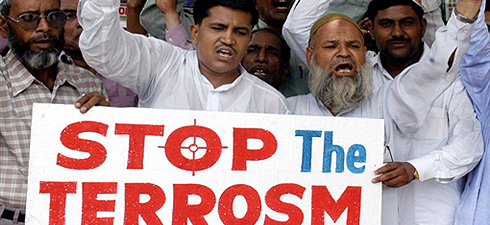The House of Commons Foreign Affairs Committee has just published a report Global Security: UK-US Relations whose headline conclusion (The "Special Relationship" is Dead) interests me. This, it seems to me, is potentially another milestone in the evolution of the phenomenon I've occasionally referred to on this blog as "Globish".
Full disclosure: for the past four years, I've been working on a book, Globish: How the English Language Became the World's Language, which argues that a seismic shift in the foundations of our lingua franca has transformed it from an expression of Anglo-American cultural sovereignty into a supra-national phenomenon, with its own powerful inner dynamic. Penguin Books will shortly publish this in the UK, and I'm on a state of alert for examples of Globish, because as I see it, this is a breaking story.
What is Globish? For me, it's not just linguistic, and it all began in 2005. In September that year, Jyllands Posten (the Jutland Post), a culturally influential Danish newspaper, published a sequence of satirical cartoons poking fun at the prophet Muhammad, which provoked riots in which 139 people died. Possibly the most bizarre response to the affair, which surfaced again in January 2010 with an assault on the home of the artist, Kurt Westergaard, was a protest by Muslim fundamentalists outside the Danish embassy in London. Chanting in English, the protesters carried placards with slogans such as "Vikings Beware!", "Butcher Those Who Mock Islam", "Freedom of Expression Go to Hell" and (my favourite) "Down with Free Speech".
This collision of the Koran with Monty Python, or perhaps of the OED with the Islamic Jihad, was the moment at which I began to reflect on the dramatic shift in global self-expression (I didn't have a word for it then) that was now asserting itself in this crisis, through a world united by the internet. What more surreal – and telling – commentary on the anglicisation of the modern world could there be than a demonstration by devout Muslims, in London, exploiting an old English freedom, and expressing it in the English language, to demand the curbing of the libertarian tradition that actually legitimised their protest? Read full article in the Guardian...
Was this article useful? If so we are delighted!
It is freely available because we believe that the right to free and independent information is essential for democracy. But this right is not guaranteed forever, and independence comes at a cost. We need your support in order to continue publishing independent, multilingual news for all Europeans.
Discover our subscription offers and their exclusive benefits and become a member of our community now!












